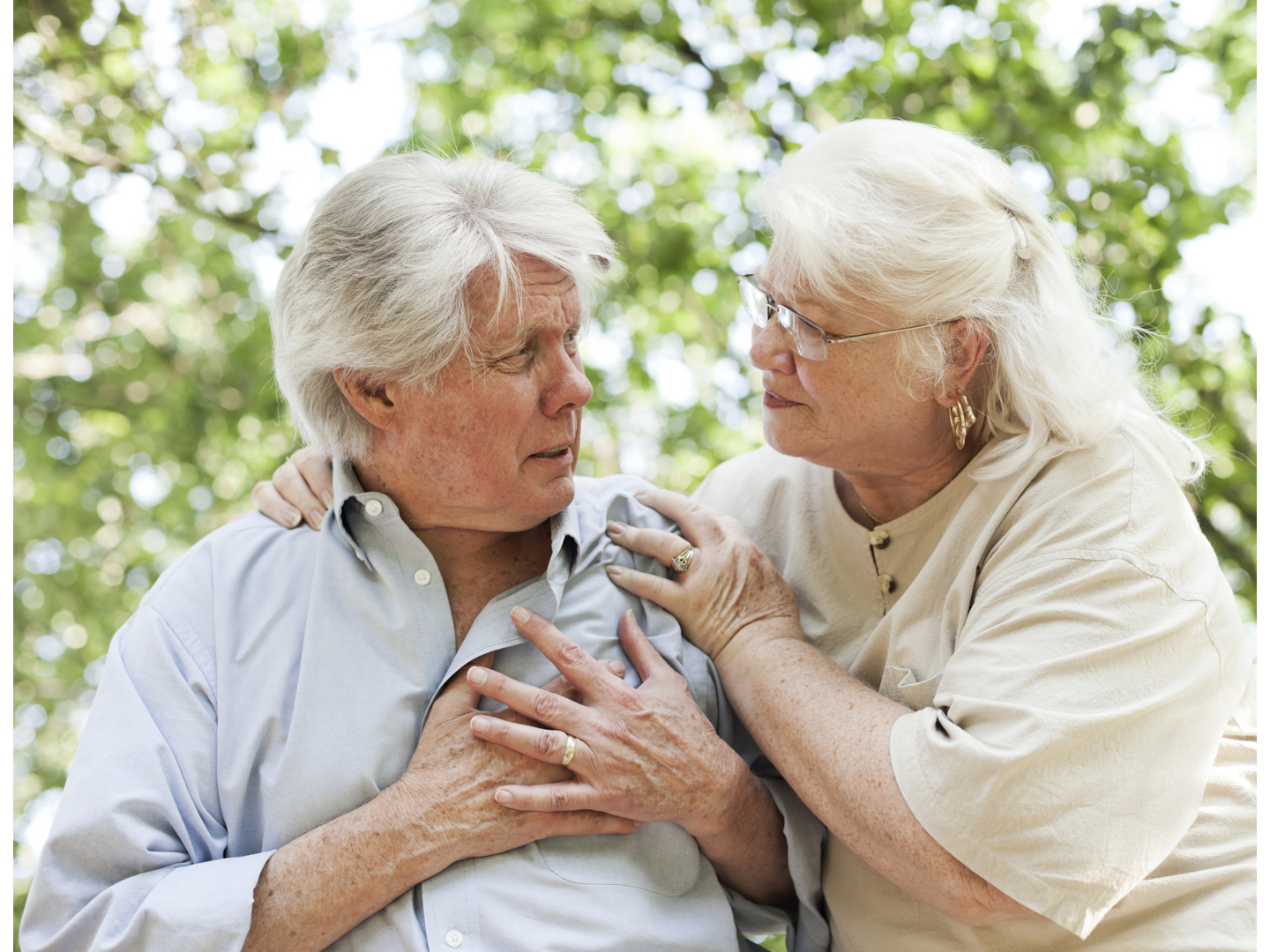Angina Pectoris

What is angina pectoris?
Angina, or angina pectoris, is chest pain that follows a decrease in the blood supply to the heart, an increased demand for oxygen by the heart, or a combination of both. It is a classic symptom of coronary artery disease and sometimes predicts heart attacks.
What are the symptoms of angina?
The single most important symptom is chest pain brought on by physical activity or exercise. This usually feels like pressure, fullness, or a squeezing pain in the center of the chest, but can also resemble indigestion. Sometimes, the pain radiates to the neck, along the left shoulder or down the left arm into your jaw or back. Other symptoms may include difficulty breathing and nausea. There are three types of angina:
- Stable. This is the most common type. It occurs when the heart is working harder than usual. The pain usually goes away with a few minutes of rest or with medication. Most people who have stable angina learn to recognize the pattern or warning signs and anticipate when it will occur. Attacks usually last five minutes or less.
- Unstable. An attack of unstable angina is dangerous and requires emergency medical evaluation and treatment; it can be a sign that a heart attack is imminent. This type of angina follows no pattern, can occur in the absence of physical exertion and is not relieved by rest. Attacks can last up to 30 minutes.
- Variant. A rare type, variant (or Prinzmetal’s) angina is due to a spasm that tightens coronary artery walls thus slowing or stopping blood flow to the heart. Attacks usually occur at rest, most often between midnight and early morning. The pain can be severe.
What are the causes of angina?
The underlying problem is narrowing of the coronary arteries due to atherosclerosis, the build-up of cholesterol-laden plaque on the inner lining of artery walls. The build-up is believed to originate with an injury to the vessel wall and subsequent inflammation. In response to the injury, white blood cells, along with cholesterol, begin to accumulate along the inner layer of the artery. The muscle layer of the artery may also enlarge, forming the basis of a plaque, which can grow large enough to narrow and eventually block the artery. As a result of the narrowing, blood flow through the artery isn’t sufficient to meet the heart’s higher demand for oxygen (carried in blood) during exercise. Angina can also be caused by spasms that temporarily constrict an artery and slow blood flow. Some attacks are triggered by emotional or physical stress, exertion after a meal or even extreme changes in temperature. The nicotine from tobacco use can directly affect blood vessels and bring on angina.
What is the conventional treatment of angina?
Conventional medicine treats angina with drugs (nitroglycerin, nitrites, nitrates) [moved] that relax and widen arteries so that more blood can flow to the heart, or with other medications (beta-blockers, calcium-channel blockers) that reduce the workload of the heart. Although these drugs can relieve the symptoms, they don’t alter the underlying problem. What’s more, all of these medications can cause serious side effects. The other standard approaches to treatment are angioplasty, a procedure using a small inflatable device (a “balloon”) to open blocked or narrowed arteries, installing a stent, and coronary bypass surgery in which blood vessels taken from other areas in the body are used to route blood around (bypass) blockages in coronary arteries. All of these interventions are very expensive, drastic procedures that may provide temporary relief but do not halt progression of disease.
What therapies does Dr. Weil recommend for angina?
Lifestyle changes can help reverse the coronary artery insufficiency that leads to angina. These include following a heart-healthy diet, mind-body techniques including yoga and mediation, group therapy and moderate exercise. If you smoke, quit.
To slow or reverse the atherosclerosis that underlies angina:
- Get more exercise. This will help maintain the health of the vessels leading to the heart, as well as strengthen the heart muscle itself.
- Control cholesterol.
- Stop smoking, and avoid secondhand smoke.
- Control your blood pressure.
The following supplements can also help:
- Coenzyme Q10 (CoQ10). This powerful antioxidant can benefit heart health by influencing the mitochondria, the tiny powerhouses found in heart cells and in cells throughout the body, which is where energy metabolism occurs. In this way, CoQ10 may help lower the heart’s oxygen demands by improving its energy efficiency. It may also help lower blood pressure. The dose is 60-100 mg a day.
- Hawthorn (Crataegus oxycantha). This herbal preparation made from the leaves and flowers of a species of hawthorn tree may help relieve angina symptoms by increasing coronary artery blood flow. The starting dose is 500 mg a day of an extract of the leaves and flowers standardized to 2% vitexen-2 rhamnoside. NOTE: Hawthorn should only be used under the supervision of a physician.
- L-carnitine. Theamino acid, l-carnitine can help relieve angina symptoms by improving heart muscle metabolism. The recommended dose is 1,000 mg twice a day.
- Fish oil. The omega-3 fatty acids in fish and fish oil supplements have been shown to be an effective preventive strategy against heart disease. They can lower triglyceride levels, increase HDL cholesterol, help minimize inflammation and blood clotting, and keep blood vessels healthy.









